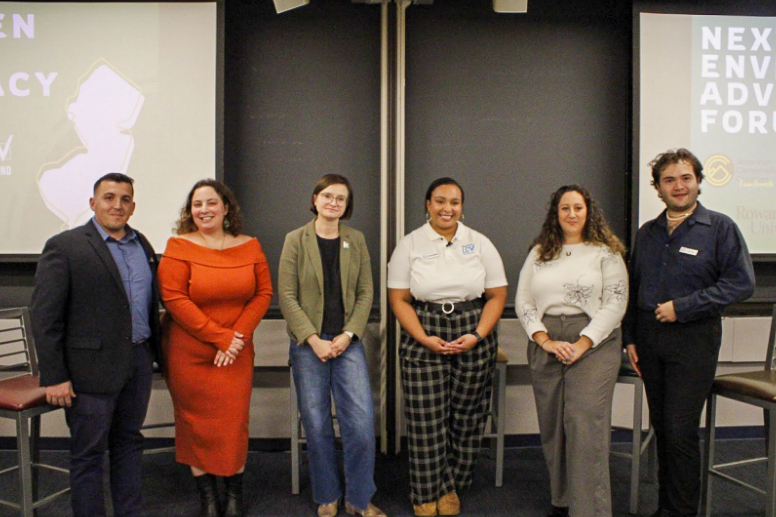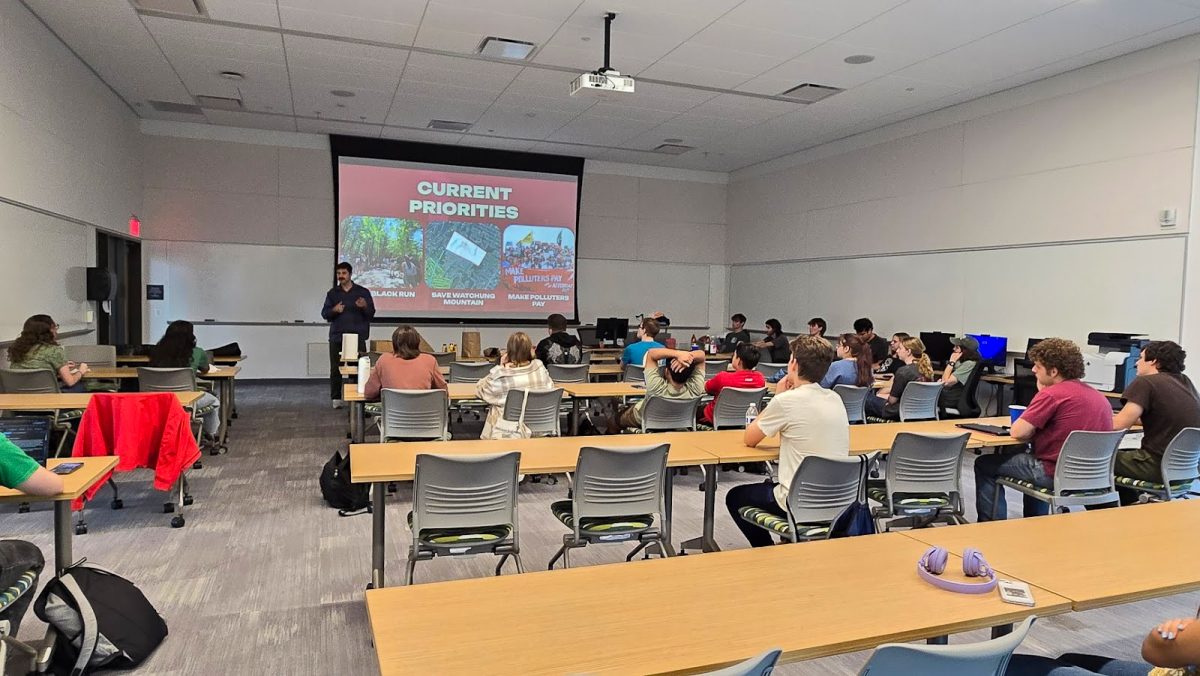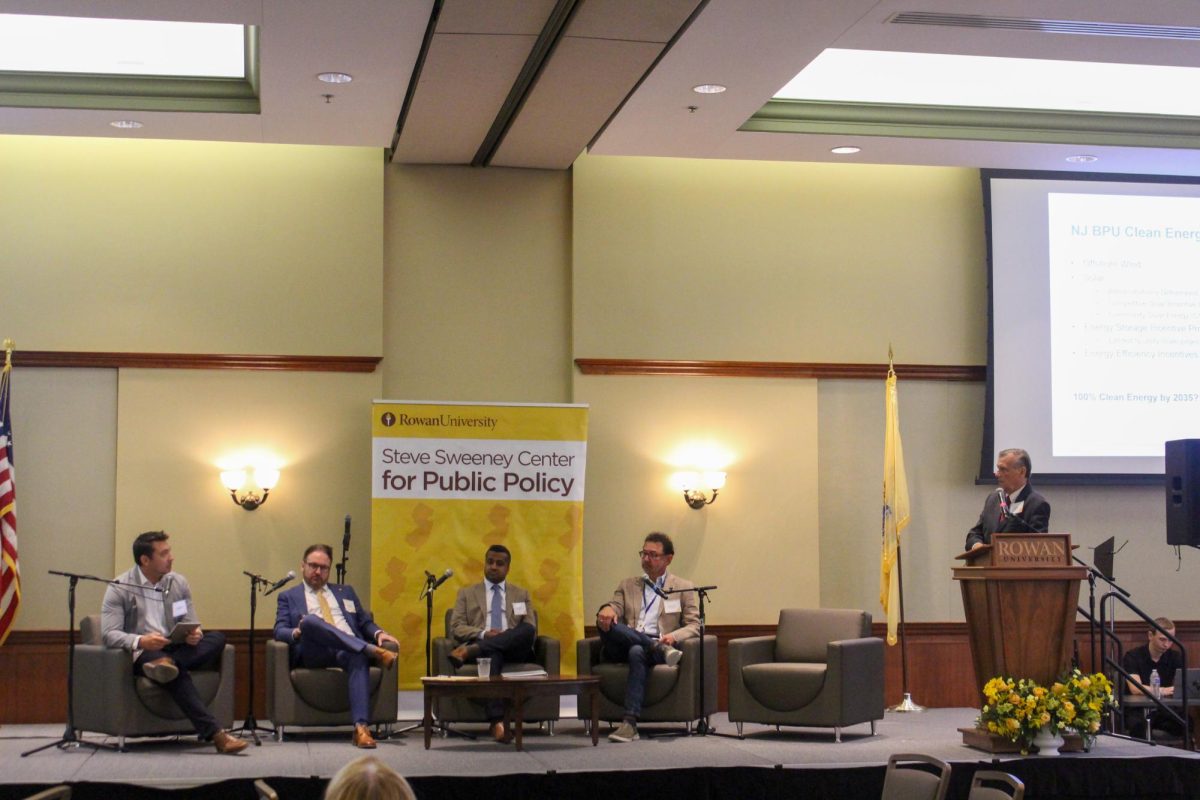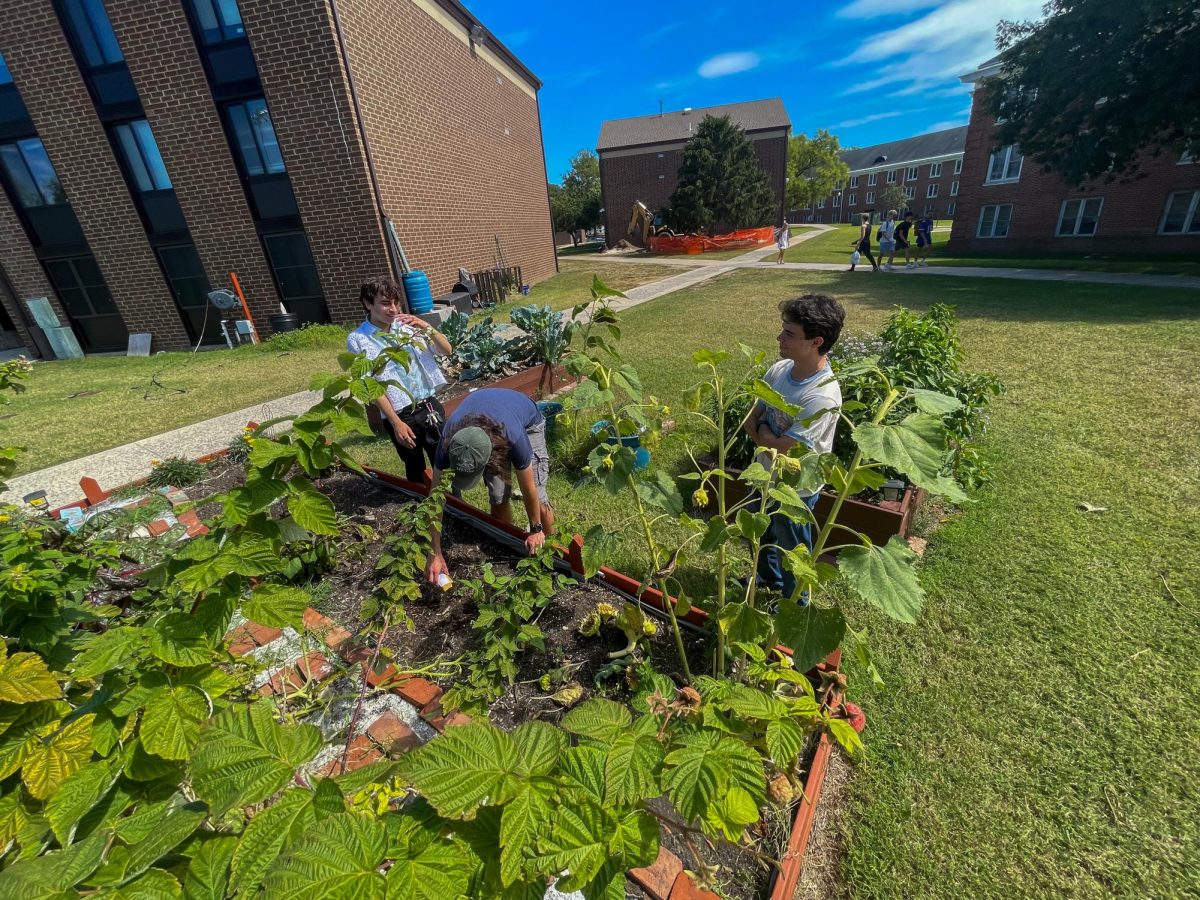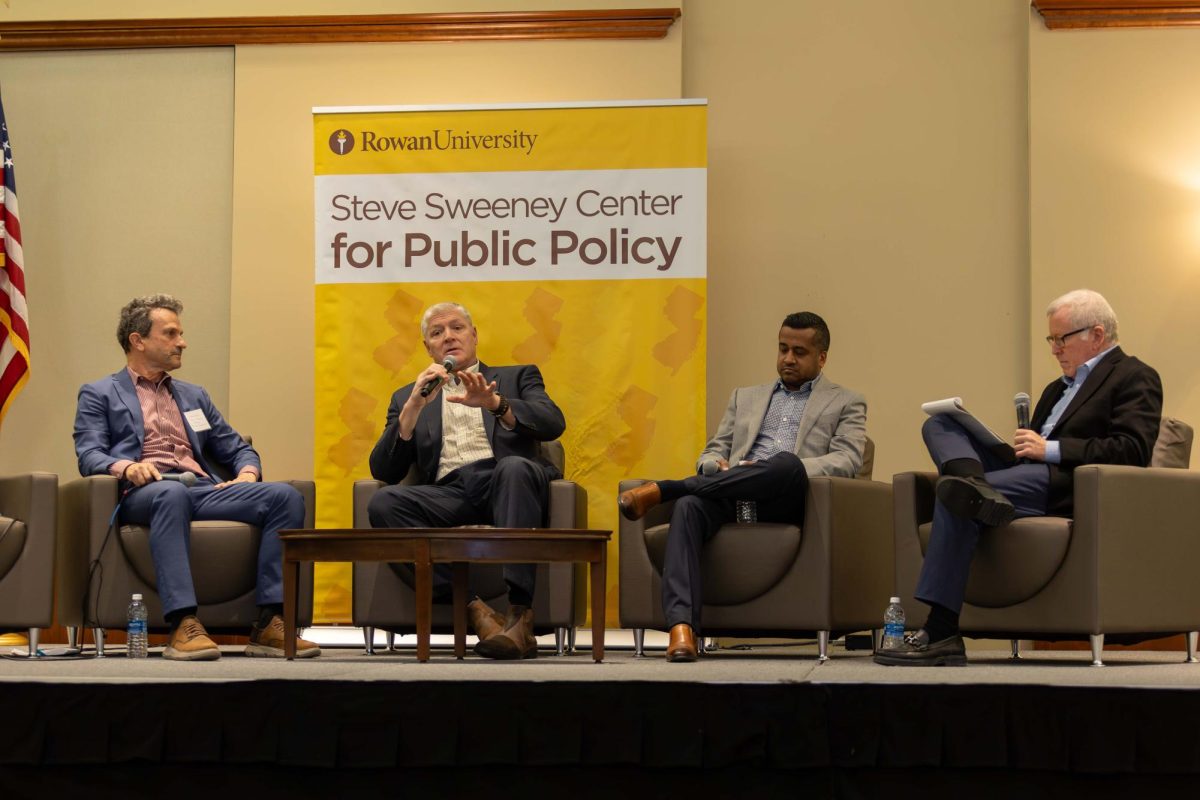An earlier version of this article originally appeared in the The Whit, a student-operated campus news outlet for Rowan University and a content partner with South Jersey Climate News.
Six representatives from different fields across New Jersey held a panel discussion in coordination with the New Jersey League of Conservation Voters, with the main goal of cutting through the political partisanship of election season, in an attempt to ensure that climate issues remain in focus.
On Thursday, Oct. 23, 2025 students gathered on the third floor of the student center to join the discussion of climate change and clean energy.
Representatives included Luke Pavlov, a campaigns manager of the New Jersey League of Conservation Voters (NJLCV), Sunni Vargas, the political director of the New Jersey Working Families Party, Milena Bimpong, the environmental justice policy associate for the NJLCV, Heidi Yeh, the policy director of the Pinelands Preservation Alliance, Vincent Palmieri, a land use planner and vice president of the local 220 chapter of the Transport Workers Union, and Franchesca Mundrick, a representative of the American Conservation Coalition and environmental science professor here at Rowan.
The representatives were very vocal, targeting PJM, a multi-state regional electrical grid transmission company, all the while highlighting New Jersey’s very weak independent electrical grid, as well as issues with being beholden to PJM’s electricity prices.
“It doesn’t matter if your house is Democrat or Republican. If there is a flood coming, it will flood your house either way,” said Pavlov.
Other talking points involved helping students understand how to become involved in environmental action, discussing the merits of various clean energy projects across New Jersey, and energy discrimination, along with its effects on impoverished communities.
Another issue discussed heavily was the affordability of energy, considering New Jersey’s increase in electricity bill prices, with njpp.org stating electricity bills rose by around $20 following June 2025. The panel agreed that PJM was to blame and urged people to educate themselves on what PJM does to electricity prices.
“I think it’s hard for a lot of younger people to participate in climate advocacy,” said Alliah Irving, a non-Rowan student. “They don’t know how to get started. I enjoyed getting the resources and hearing about the issues affecting us.”
Students were encouraged to take action and voice their concerns to our state capital. There were ample opportunities available for students to involve themselves with protecting the climate.
“The best part was talking about the effects of clean energy all throughout New Jersey. I think there’s a lot of issues with the base of knowledge people have about those clean energy [sources],” said Ayla Reilly, a junior majoring in environmental & sustainability studies.

